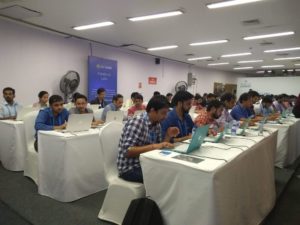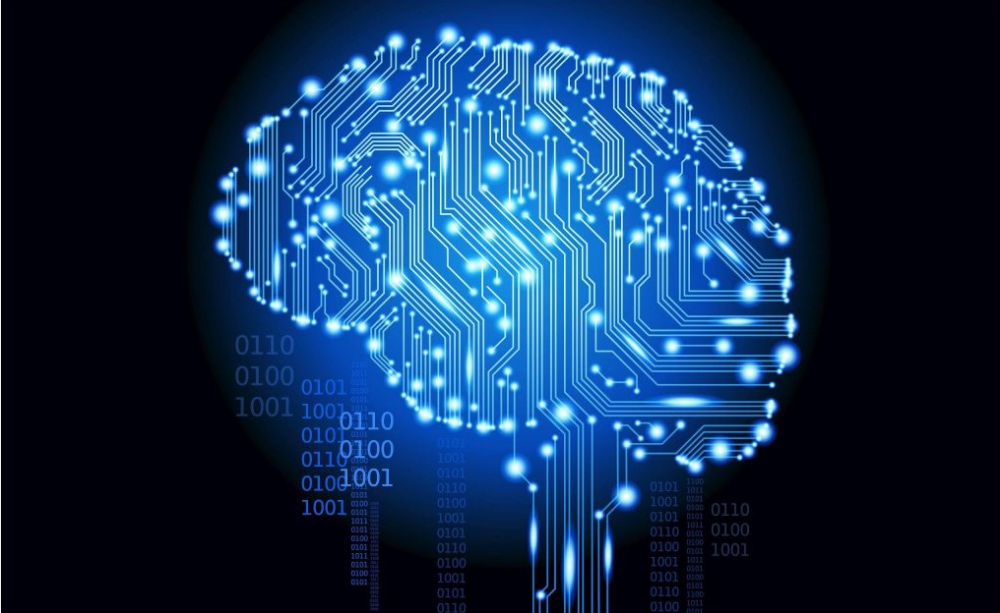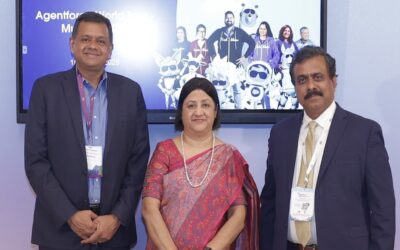Knowing customers well and then creating innovative products, services and great experiences are ingredients for success in modern business. The key to doing all of that is speed and scale. Manual processes and human processors are not adequate to respond fast enough for this. Even today’s processing chips are falling behind and are substituted with GPUs (Graphics Processing Units) and TPUs (Tensor Processing Units). Today’s businesses can respond to customer needs and market shifts only by adopting Artificial Intelligence and machine learning (ML) models. This is quite visible in the world of Banking and Finance. The problem is, it is not so easy to build ML models; it’s a challenge to construct a platform with all the components required to create a model. And there aren’t enough machine learning experts (with PhD degrees) in the world to do that. This is a gap that Google is trying to close.
Speaking at the Google Cloud Summit, in Mumbai on June 12, we learned just how the company is helping businesses and developers around the world to develop ML models. At the core of its strategy are training, automation, services & frameworks, and of course, the Google Cloud Platform (GCP).
“Google is making it simpler for businesses to build machine learning models by packaging those skills into pre-built model construction frameworks like TensorFlow,” said Miles Ward, Director Solutions, Google Cloud. “We have made it simpler – you just need to write a bit of code in Python and get a model done.”

Miles Ward, Director Solutions, Google Cloud – Photo credit: Digital Creed
It’s a less known fact that Google engineers helped build TensorFlow, which is now an open source machine learning framework that anyone can use. But Google is also offering the other components: the platform, services, expertise and the processors (TPUs). And then there is training.
“Today’s computers can do all kind of math and do general purpose processing. But they are not as fast to do machine learning. So Google designed a new type of processor called Tensor Processing Units or TPUs. These processors are optimised just for doing ML math. TPUs are 15 – 30 times faster than conventional processors.”
Training for machine learning

Photo credit: Digital Creed
At the summit, Google also made two announcements about training. It announced a new course on Machine Learning via Coursera. The second announcement was about an associate certification in machine learning.
Since Google conducted its last summit in Mumbai, six months ago, demand for training on its tools and services has soared 825%. So training is now a focus area for Google in India.
More than 2,000 people attended the Google Cloud Summit in Mumbai with another 5,000 watching the live stream of the event online. Google offered a free course voucher to this audience. It also conducted training workshops on the sidelines of the summit.
Services and tools
Google is also trying to accelerate ML journeys by offering services and tools on the Google Cloud Platform. For instance, it has a tool called Cloud AutoML that takes complicated machine learning workflows from a business and automatically builds a machine learning model. Google demonstrated this during the summit, and it seemed to be a point and click affair – with not a line of code being written.
“You can build TensorFlow models and have us execute them on your behalf. There is a service called Google Cloud ML Engine for this. Businesses can leverage Google’s scalability expertise and processing in the cloud for their ML models,” said Ward.
The demand for machine learning models and services is increasing as business workloads get more complex. And this is where Google’s machine learning services and cloud platform can help. GCP is built for scale and speed, just what a business needs to process complex workloads.
Business use cases
One example is Airbus Defence and Space. The aerospace major used Google Cloud Machine Learning services to automate the process of detecting and correcting satellite images that contain imperfections such as the presence of cloud formations. Historically, this process was time-consuming, prone-to-error and was unable to scale as satellite technology improved the quality and quantity of images available.
“In our tests, Google Cloud Machine Learning enabled us to improve the accuracy and speed at which we analyse the images captured from our satellites. It solved a problem that has existed for decades,” said Mathias Ortner, Data Analysis and Image Processing Lead, Airbus Defence and Space.
Another example is Global Fishing Watch, a collaboration between Oceana, SkyTruth, and Google. It aims to increase awareness about fisheries and influence sustainable fishery policies through transparency. It gives citizens, governments, industry, and researchers a free online platform to visualise, track, and share information about fishing activity worldwide.
Global Fishing Watch uses Google Cloud Platform and machine learning services to process millions of messages from more than 200,000 fishing vessels every day. In doing so, Global Fishing Watch is helping develop sustainable fisheries for generations to come.









